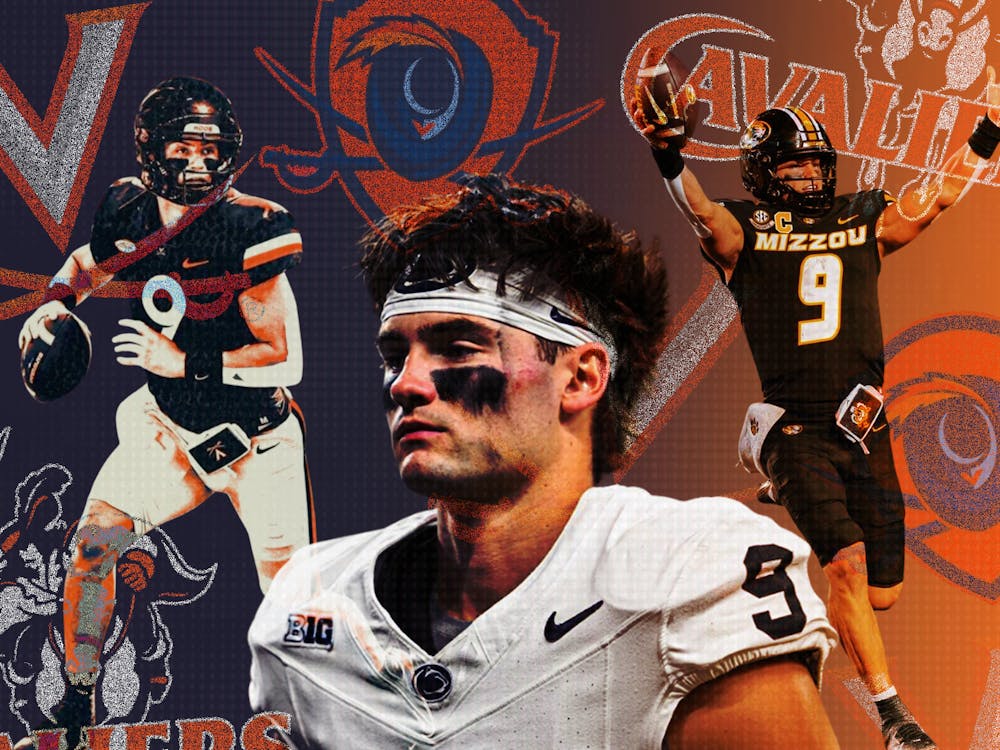Let's face it. It's easy to not like Al Groh.
He lacks the charisma of Lou Holtz and on-the-field excitement of Urban Meyer. And after quickly attempting to dash decades of football cultures, condemning guys in ties and girls in pearls, Groh landed himself on U.Va.'s short list of pet peeves, right next to ISIS and midterms.
Like many Wahoos, I was an Al Groh-hater. The reasoning was simple: He never took risks and he couldn't answer a question without using the word "circumstance." I wore my tie to football games in protest and cheered my players, not my coach.
I skipped much of the 2006 season, too depressed to pay close attention to the team. When the summer rolled around, I thought long and hard about the 2007 schedule and decided that this year's team just didn't have the composure to be anything greater than mediocre. I didn't believe Groh when he said his team just needed some experience together.
Like Sports Illustrated, I thought Groh very well might be the worst coach in the country. And Virginia's 23-3 loss to Wyoming solidified that notion. Three wins later, even with an upset against Georgia Tech in the books, I hadn't changed my beliefs much.
It all started in October, when Virginia beat Connecticut 17-16 to begin its string of close wins. The win had been dramatic, the team elated for having knocked off a ranked UConn squad. And that was when I wrote my only negative column about Virginia football. I said it plain and simple. Virginia was doomed to fail because it only saw the score of the game; it didn't see missed masses, the mental mistakes and the looming penalties that hung over the game. All it cared about was having won. There were a lot of smiles in that locker room.
The next week, Virginia traveled to Maryland. In what was certainly the most exciting game I've seen since FSU in 2005, the Cavaliers did the unthinkable and upset Maryland in the final minute, overcoming a double-digit differential. There were plenty of smiles, but a different demeanor than I had seen the week before. After the game, I met a man named Mikell Simpson. He, along with Chris Long and Groh, said something I never thought I'd hear. Each one of them said he was happy for the victory but recognized the mistakes the team made and the improvements that would be necessary to win the next week.
Suffice it to say, I was impressed -- even a little self-righteous to think I may have had an effect on the coach and his team.
And then the magic continued to happen. Groh and his boys pulled out win after marvelous win. When the team lost to N.C. State, and I feared the student body would turn on Groh, I defended him. I told everyone to stay calm. Al Groh had put this team in a position to be successful.
When the final game of the regular season arrived -- a match against Virginia Tech -- I feared the worst. But it never came. Despite losing, Virginia actually played a respectable game. Baring a few ill-advised plays, the Hoos almost won. And Groh's rarely-respected offense put up 21 points on a team that at the time gave up an average of 14 per game. They put up offensive numbers only beaten by Clemson and national-champion LSU.
So what did this season tell us about Al Groh? That he can make a team of winners. Even if the offense doesn't rank in the top 100. Even if the defense is susceptible to speedy receivers and strong arms. Even if the Cavs shouldn't win because they don't match up on paper, they still fight against anyone.
When the bowl game arrived, and Virginia faced the most dominating offense in the nation, I said something to myself I had never said before. "If anyone can beat this team, it's Al Groh." And Groh found a way to neutralize All-American Michael Crabtree and keep Texas Tech's offense from beating Virginia.
It's true, it's easy to not like Al Groh. He doesn't energize the Virginia crowd, and he doesn't instill confidence in the student body. But he wins football games. And if he can come this close to beating Texas Tech, there's no reason why Virginia can't beat USC and win an ACC Championship in 2008.
So let this season be a testament to his ability. Let him stand on his victories, and should he waver, instead of casting him off like the latest fad, remember the energy and confidence he puts into his football team.






